The UN Has Generations of Palestinian Blood on Its Hands
Though it is often seen as a target of Israeli aggression, the UN has always played a crucial role in the oppression of Palestinians.
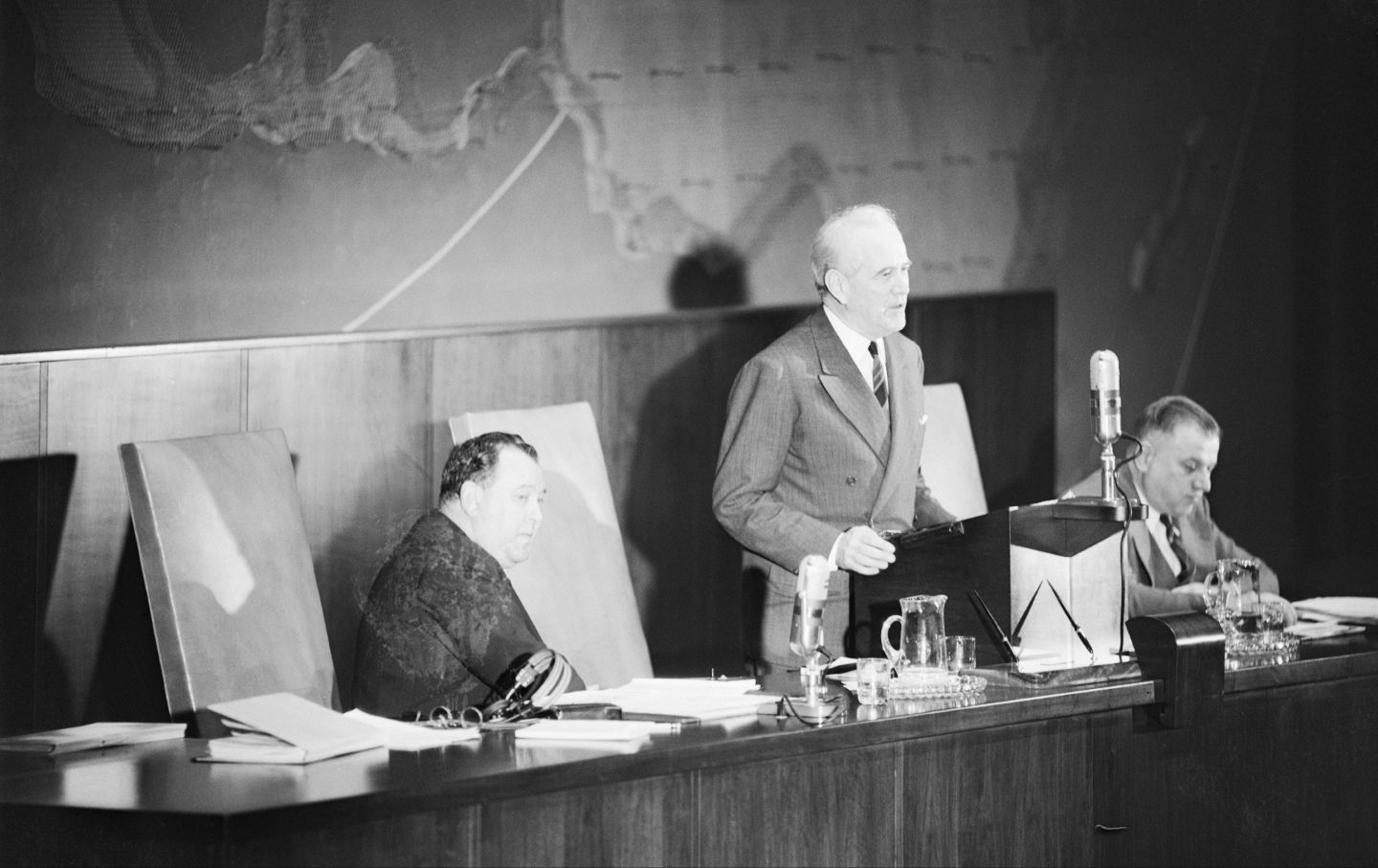
Dr. Oswaldo Aranha, president of the UN General Assembly, shown announcing the assembly’s official adoption of the plan to partition Palestine into independent Arab and Jewish states on November 29. 1947.
(Bettmann via Getty Images)As the most horrific period ever for Palestinians—one in which at least 44,000 people have been slaughtered, including 17,000 children—unfolds before our eyes, it has become even more imperative to delve into the question of who bears historical and current responsibility for the situation that Palestine is in today. One place we can start: the United Nations.
The UN prides itself on being the world’s largest organization, claiming that its purpose is to “maintain international peace and security.” Regarded globally as an authority on human rights, the UN is, theoretically, the mechanism through which international law is created and enforced (on some more than others).
In the case of Palestine, the UN’s role, contrary to what many believe, has been catastrophic. While it is globally viewed as a victim of Israeli restrictions, particularly with the severe funding cuts to the UN’s Palestinian refugee agency, it has in fact historically operated as a tool for the imperial and colonial ambitions of the global powers that invented it.
Perhaps the most chilling example of this came on November 29, 1947, when the UN formally approved a plan to partition Palestine, thus giving Zionist militias the green light to tear the state apart against the will of its people and the Arab world.
Some of the same powers that created the UN to “police the world” at the end of World War II are now partaking in Israel’s horrific genocide in the Gaza Strip and have helped to orchestrate the past seven decades of erasure, ethnic cleansing, land theft, murder, and the destruction of an entire people.
If the events of the past 12 months have taught us anything, it’s that Palestinians aren’t just battling the world’s most powerful regimes or their vicious Arab allies in the region. They are fighting for their survival against an entire postwar global political order.
The UN was the brainchild of the United States as a means to secure its own interests and those of its allies—the United Kingdom, Russia (then the Soviet Union), and China. The group called themselves the “Four Policemen” of the world.
With the addition of France, these global powers, today, make up the five permanent members of the UN Security Council (UNSC) known as the “P5.” As the most vital and influential organ of the UN, the Security Council has functioned as the primary overseer of Israeli settler colonialism as it has wreaked havoc over the lives of millions of Palestinians and the larger Arab world.
While it should not be considered the starting point for Zionist colonialism, the UN’s partition plan—referred to as Resolution 181—remains central to the map and reality of Palestine today. It served as the catalyst that set in motion the organized and systematic violent ethnic cleansing of Palestine between 1947 and 1949, and set the stage for the next seven decades of the same policies.
Partition is the reason the UN Relief and Works Agency was created in the first place, entrenching Palestinians as a refugee population dependent on foreign aid. It is also why Palestine suffers from the world’s “longest unresolved refugee crisis.”
In the six months between the passing of the partition plan on November 29, 1947, and May 15, 1948, Zionist militias had already committed some of their most horrific massacres and expelled half of the total number of Palestinians that would eventually be displaced during the Nakba.
And while Palestinian and international objections to the plan were loud and clear, the world’s powers enforced it anyway.
“Partition involves the alienation of territory and the destruction of the integrity of the State of Palestine. The United Nations cannot make a disposition or alienation of territory, nor can it deprive the majority of the people of Palestine of their territory and transfer it to the exclusive use of a minority in the country,” a subcommittee composed of Afghanistan, Colombia, Iraq, Lebanon, Pakistan, Saudi Arabia, Syria, and Yemen, said in the deliberations ahead of the vote on the partition plan.
“The settlement of the future government of Palestine is a matter solely for the people of Palestine,” the committee added.
“What authority has the United Nations to do this? What legal authority, what juridical authority has it to do this, to make an independent State forever subject to United Nations administration?” the then–foreign minister of Pakistan, Sir Chaudhry Zafrulla Khan, said in a speech at the UN.
“Having cut Palestine up in that manner, we shall then put its bleeding body upon a cross forever. This is not going to be temporary; this is permanent. Palestine shall never belong to its people; it shall always be stretched upon the cross,” he continued.
The Syrian delegate at the UN challenged the efforts by Western powers to solve a crisis in their own territory—namely, the genocide and persecution of Jews throughout Europe—by destroying the homeland of another people.
“The question of Palestine is altogether independent and separate from the question of persecuted persons of Europe. The Arabs of Palestine are not responsible in any way for the persecution of the Jews in Europe,” the Syrian delegate said.
“Palestine has become the acid test of human conscience. The United Nations will find that upon their decision will depend the future of humanity, whether humanity is going to proceed by peaceful means or whether humanity is going to be torn to pieces. If a wrong decision flows from this assembly, you may take it from me that the world shall be cut in twain and there shall be no peace upon earth,” Asaf Ali, then Indian ambassador to the US, said on May 15, 1947, one year before the Nakba.
These are mere snippets of the objections expressed to the plan to divide Palestine and the warnings against the implications of such a decision.
Despite the severe injustice with which Israel was created, the UN added salt to the wound by passing a resolution granting Israel membership into the organization and describing it as a “peace-loving state,” thus essentially legitimizing settler colonialism and violence as a means to an end.
And while Israel has continued to murder, pillage, and displace Palestinians since declaring statehood, there is a reason Palestinians have never seen justice, and why, despite the global calls for a ceasefire in Gaza, their demands have not been heeded.
This is because the Western regimes that created and control the UN through the Security Council are the same ones that supported the creation of Israel. They remain invested in its existence as a military and settler outpost to protect their interests in the region, regardless of how much harm it causes Palestinians.
Given that Israel’s existence is predicated on the ethnic cleansing and destruction of Palestine, the UN is inextricably tied to the continued murder of Palestinians. From partitioning Palestine to legitimizing and helping to maintain the settler colony over the past 76 years as it breaks every international law created, the UNSC, along with other invested states such as Germany and Australia, has played a key role in enabling Israel’s violations of international law.
Popular
“swipe left below to view more authors”Swipe →In this context, these actors are just as complicit as Israel in the ongoing genocide, which, in its eliminationist campaign in Gaza seeks to annihilate one-third of the total Palestinian population of 6 million people between the river and the sea. Decision-makers of the UNSC P5 governments, starting with the US and UK, must be put on trial not only for the blood on their hands today but also for their historic roles in the unjust partition of Palestine and its devastating consequences.
Oxfam, among other groups, has called for reform of the UN system in recent months, noting that UNSC P5 “are exploiting their exclusive voting and negotiating powers to suit their own geopolitical interests.”
“The contradictions of their acting as judge and jury of their own military alliances, interests and adventures are incompatible with a world seeking peace and justice for all,” the group said, explaining that the five powers have blocked progress in Syria, Ukraine, and Palestine more than anywhere else.
Over the past year, matters have become unprecedentedly difficult for Palestinians, not only in Gaza but across all of the militarily occupied territories of the West Bank and Jerusalem. This includes organized deadly settler and army attacks leading to systematic murder and injury, mass land theft and ethnic cleansing, the besieging of Palestinian cities and villages, arrests, arbitrary detention, torture, and severe deprivation of freedom of movement, to name a few.
Palestinians as a people are facing extermination not just by Israel but by the powers of the global order. If these systems are not halted from within through popular mobilization, the genocide in Gaza will be just the beginning.
More from The Nation
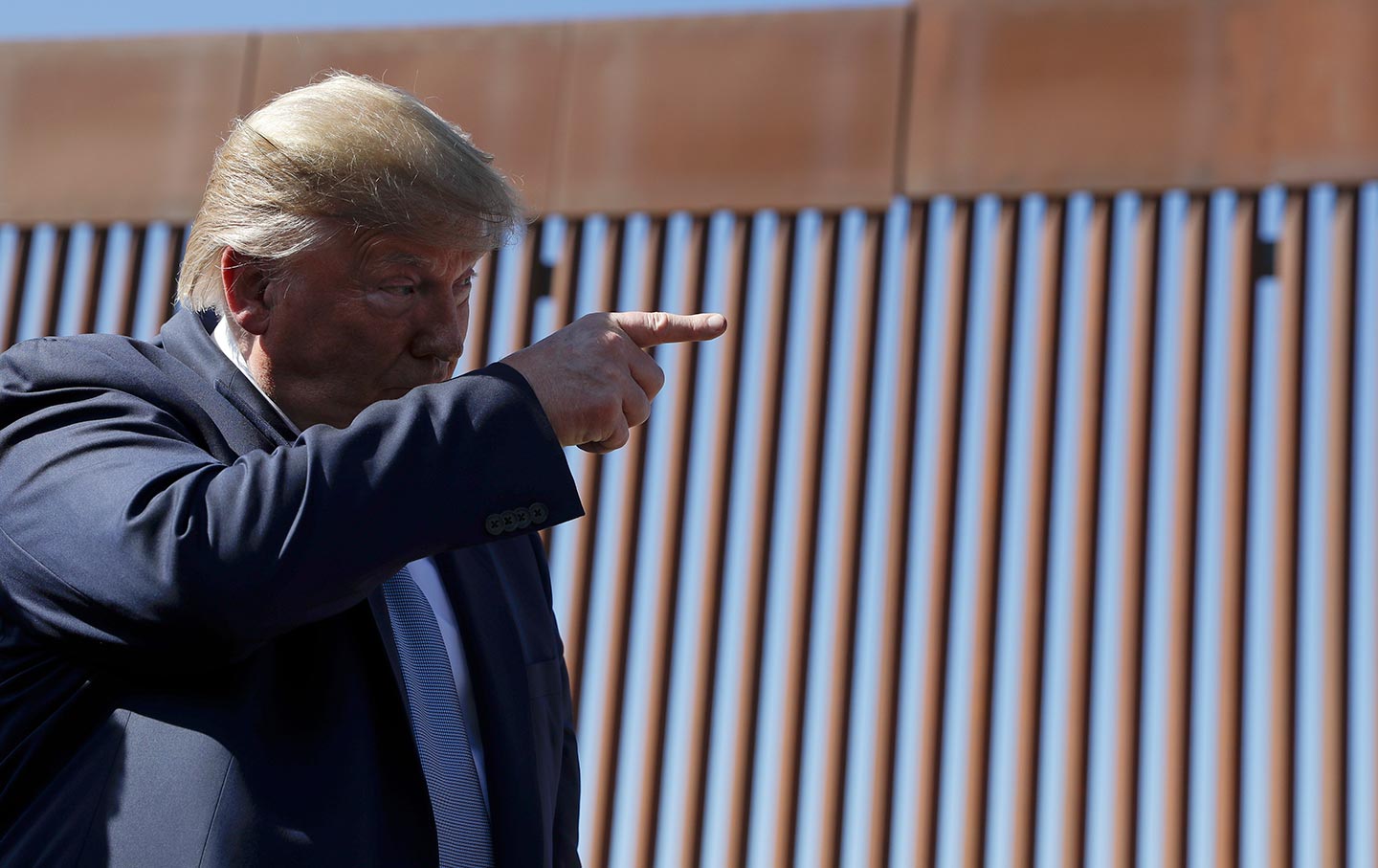
Biden Built the Deportation Machine Trump Is About to Exploit Biden Built the Deportation Machine Trump Is About to Exploit
Biden left office as the king of border contracts, creating a massive border-and-deportation arsenal now at Trump's disposal.
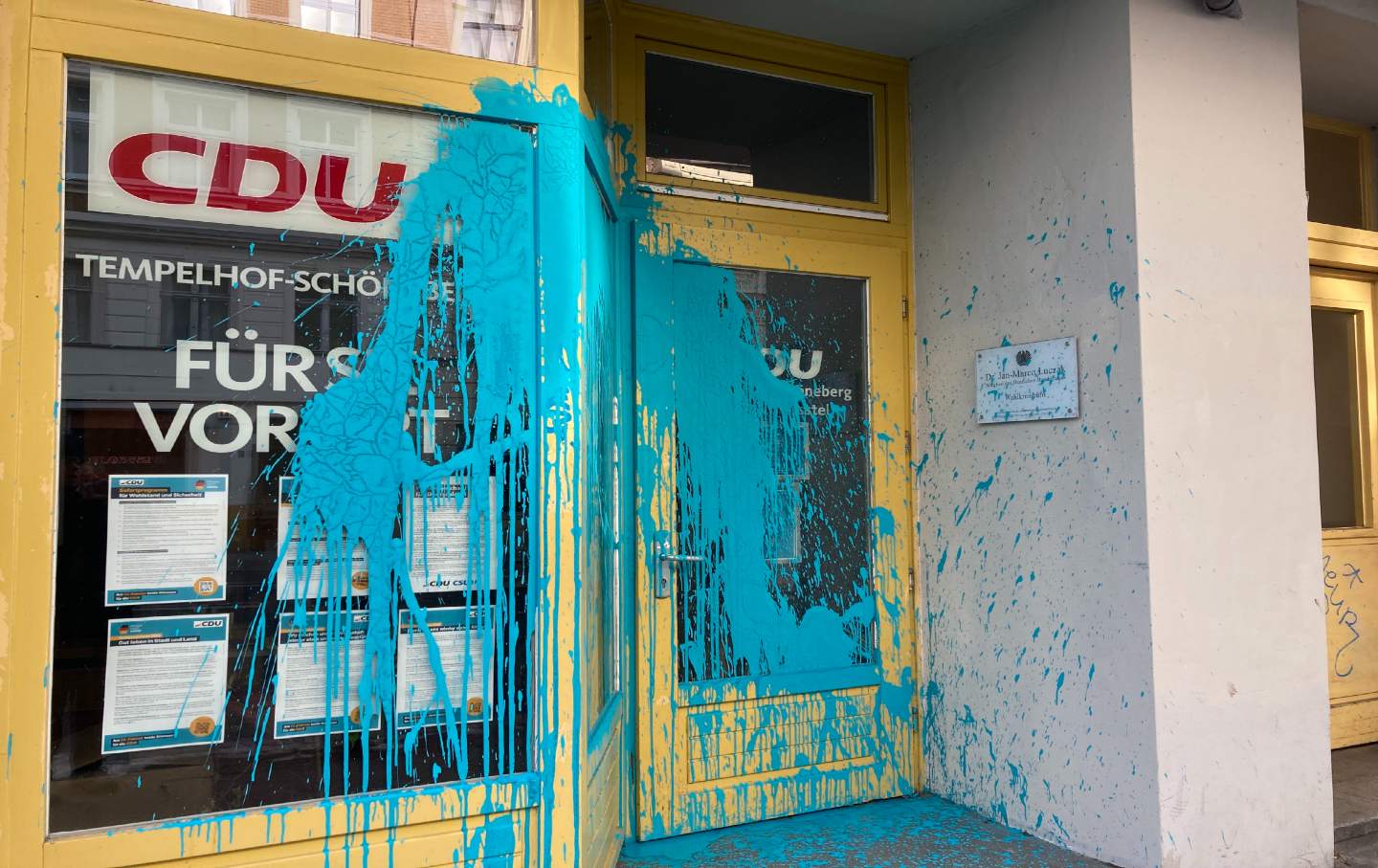
Germany’s Suddenly Turbulent Election Germany’s Suddenly Turbulent Election
In the wake of Trump’s victory—and his administration’s transformation from staunch ally to sneering adversary—Germany’s firewall against the far right is beginning to crack.
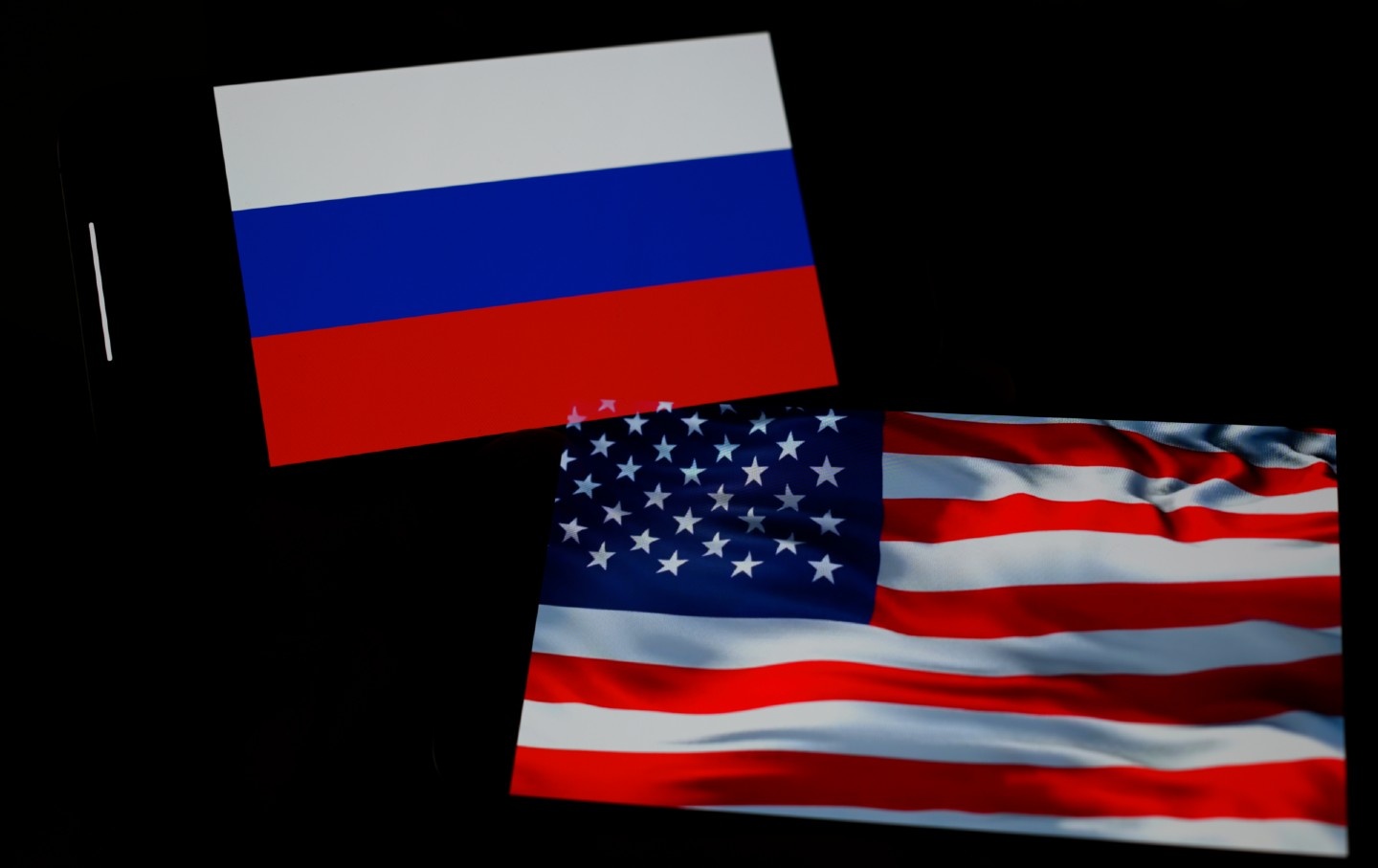
The Trump Administration, the Democrats, and the Ukraine Peace Process The Trump Administration, the Democrats, and the Ukraine Peace Process
The challenges ahead.

What’s Next for Syrian Refugees? What’s Next for Syrian Refugees?
While Syrians around the world are celebrating the fall of Bashar al-Assad’s regime, they are still cautious about what comes next.
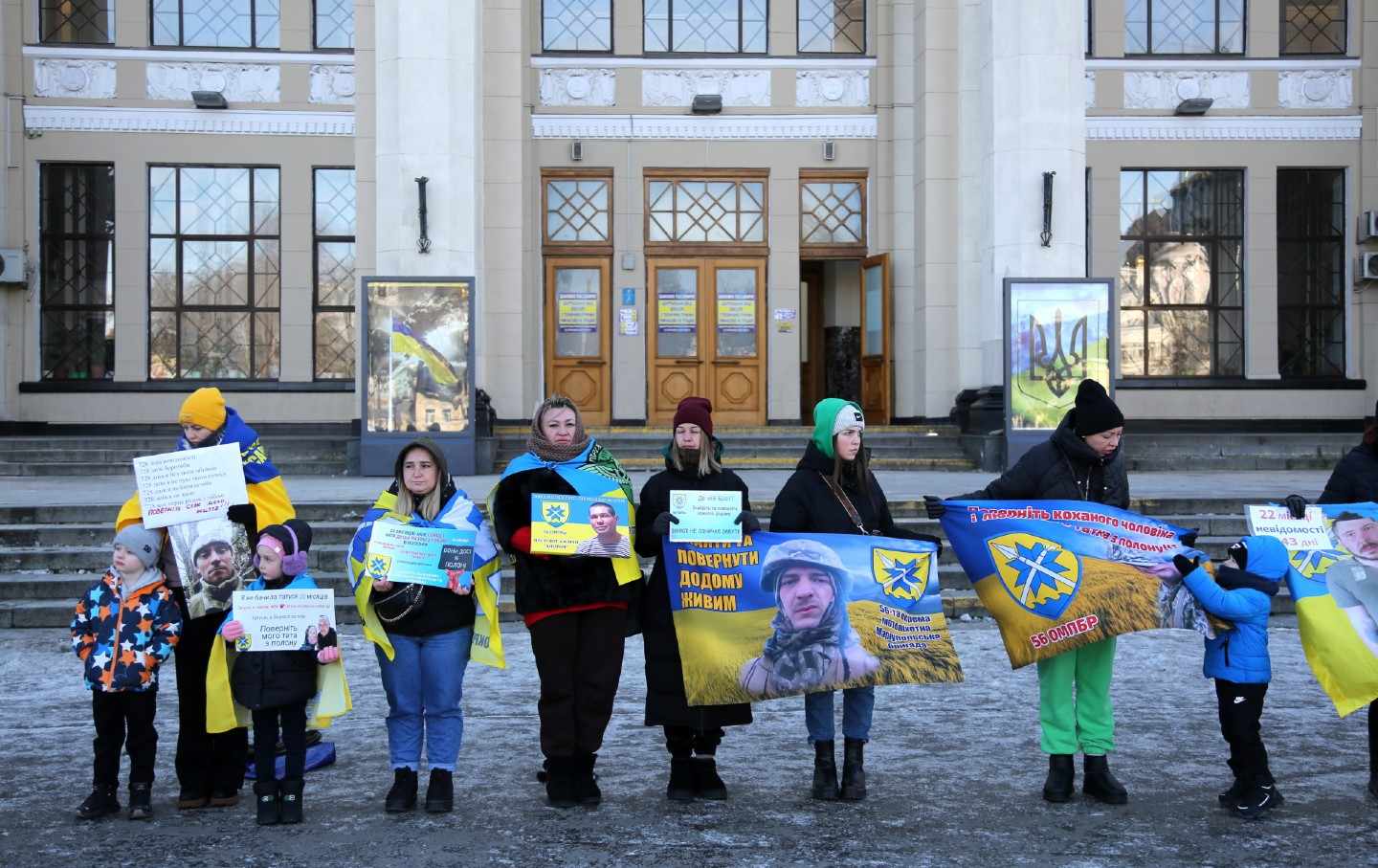
A New International Campaign Rises in Ukraine A New International Campaign Rises in Ukraine
Its goal is unmistakable: let Ukrainian civilian prisoners go.
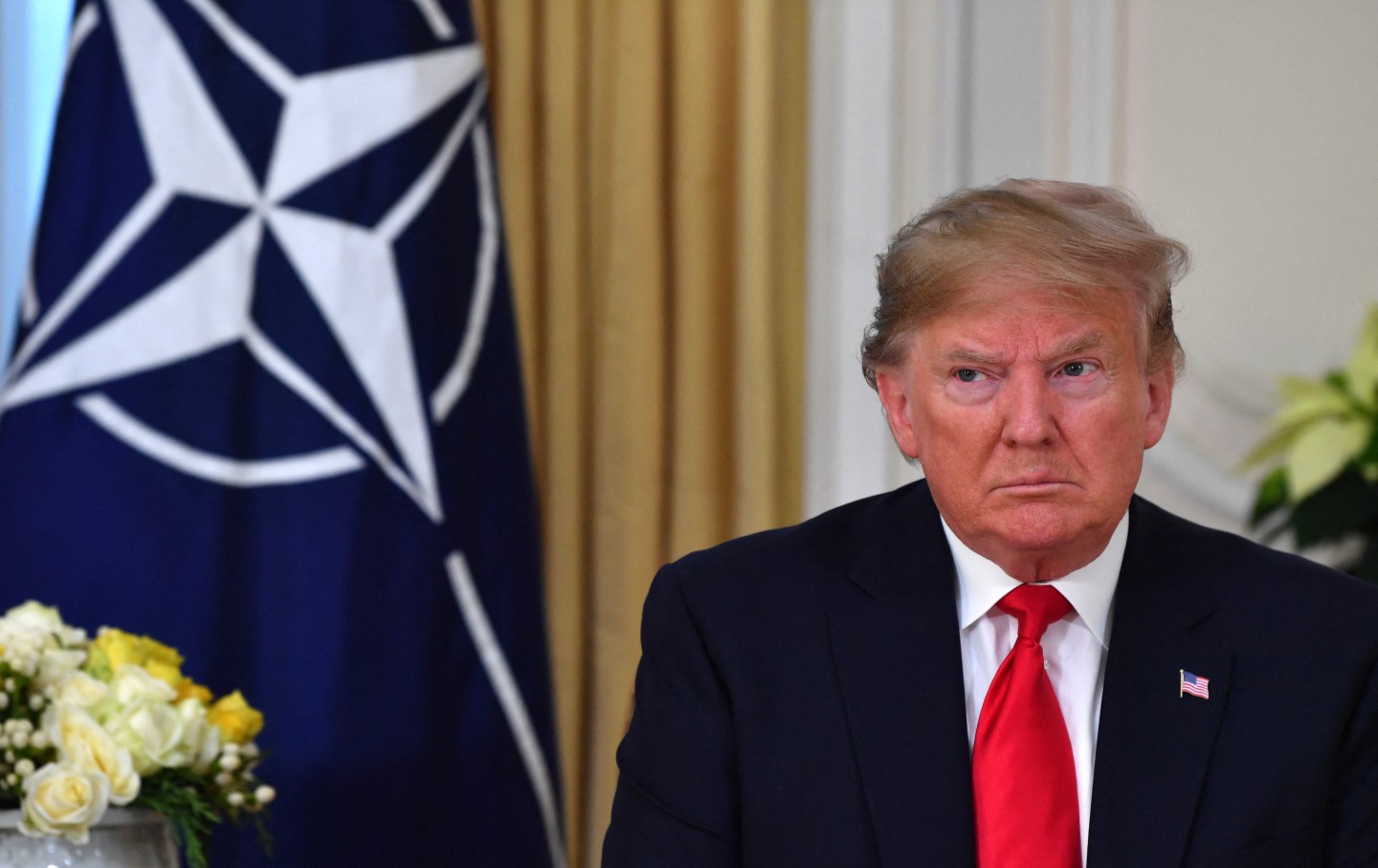
Trump’s Mafia Shakedown Might Destroy NATO—if We’re Lucky Trump’s Mafia Shakedown Might Destroy NATO—if We’re Lucky
America’s greedy gangster president is forcing European elites to finally reckon with the high price of protection.


